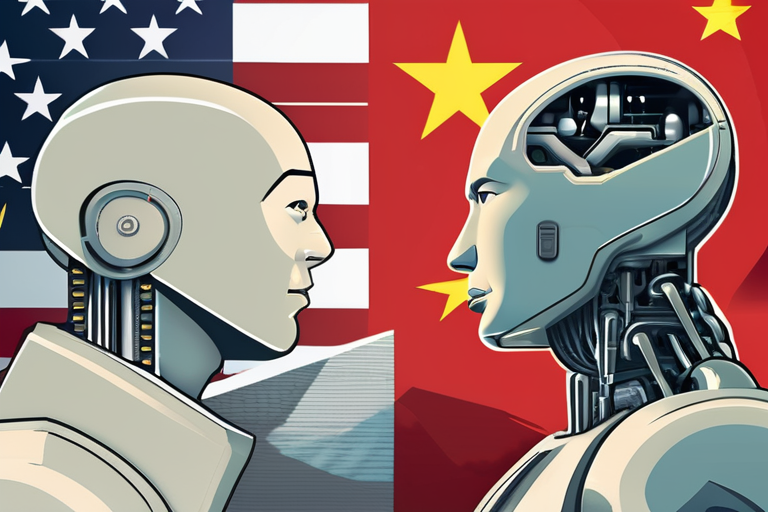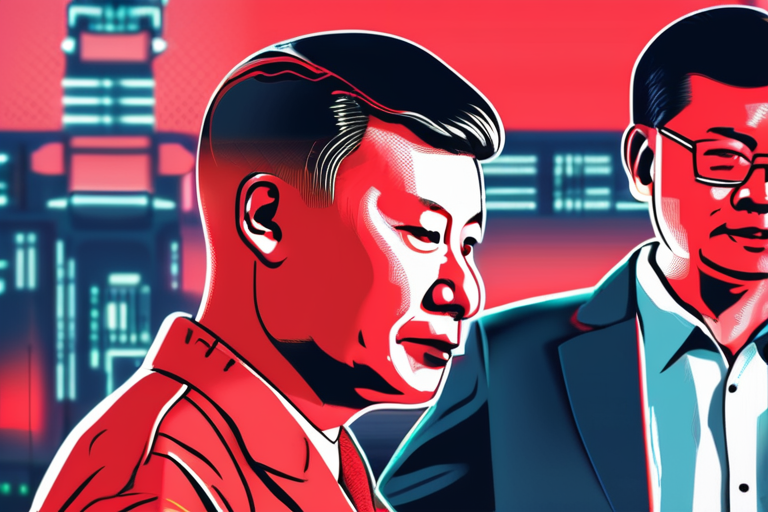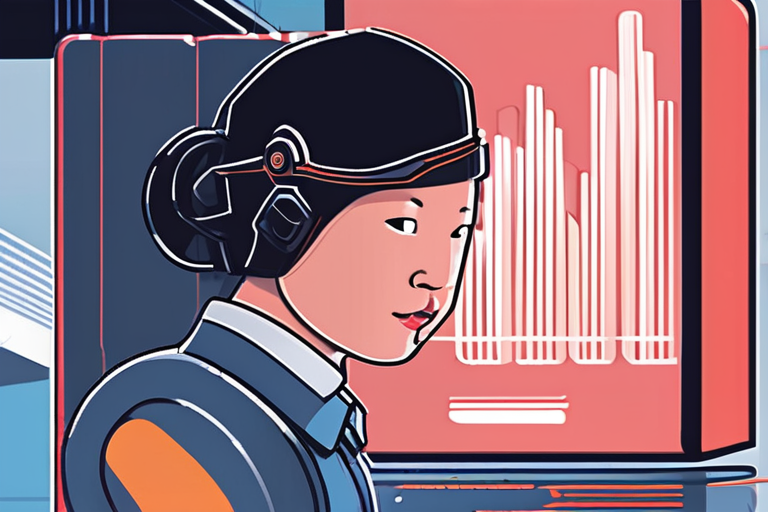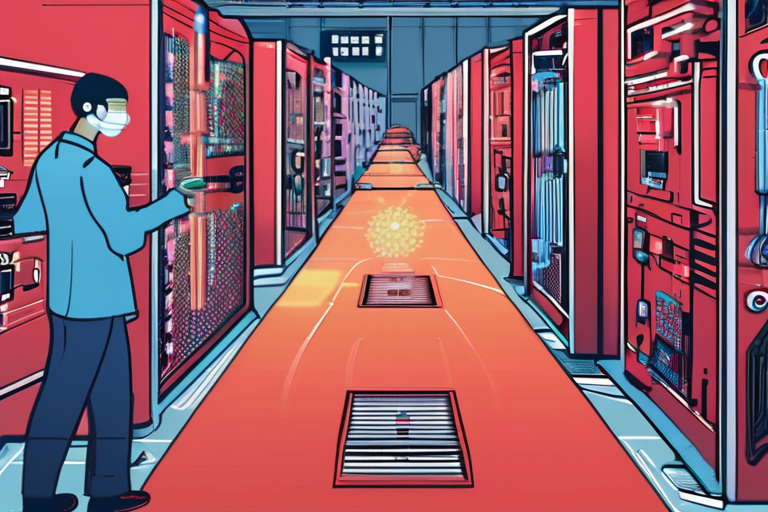
Multi-Source Journalism
This article synthesizes reporting from multiple credible news sources to provide comprehensive, balanced coverage.

Multi-Source Journalism
This article synthesizes reporting from multiple credible news sources to provide comprehensive, balanced coverage.
Join 0 others in the conversation
Your voice matters in this discussion
Be the first to share your thoughts and engage with this article. Your perspective matters!
Discover more articles

China's dominance in the open-source AI space raises significant geopolitical concerns for the US and its allies, as it accelerates the global AI arms race. According to Andreessen Horowitz's Anjney Midha, China's rapid progress in open-source models

China is rapidly closing the gap in the global AI race, with the country's researchers and institutions producing a significant majority of AI publications and patents. According to recent data, China's citations in AI research have surpassed those o

In a phenomenon eerily reminiscent of conspiracy theories, the concept of Artificial General Intelligence (AGI) has captivated the public's imagination, sparking both excitement and fear about its potential impact. As the global AI landscape evolves,

China's rapid advancements in open-source AI have sparked concerns for the US and its allies, as the country's dominance in this space could give it a significant edge in the global AI arms race. According to Andreessen Horowitz partner Anjney Midha,

China is aggressively investing in artificial intelligence (AI) and robotics, with a focus on developing high-end chips to power these technologies. This effort has sparked concerns among US tech giants, including Nvidia, which dominates the global A

The US economy's reliance on AI investments has reached unprecedented levels, with 40% of GDP growth in 2025 attributed to AI companies. However, recent major deals between AI giants like Nvidia and OpenAI have sparked concerns about "round-tripping,

China's generative AI user base has surged to 515 million in just six months, more than doubling its previous numbers and positioning the country as a major force in global AI adoption. The rapid growth is driven by advanced infrastructure and state

Google's President of Global Affairs, Kent Walker, has warned that the EU's slow adoption of AI technology is putting it at a disadvantage globally, particularly against China. According to estimates, the EU lags behind China by 69% in generative AI

As the generative AI revolution reshapes global power, China is rapidly closing the gap with the US in technological supremacy. With a significant lead in AI publications and patents, China's whole-of-society approach to AI development is yielding im

Huawei is developing advanced "agentic" AI systems capable of making decisions independently, moving beyond simple command-response interactions. These autonomous platforms are being applied in various industries, including manufacturing and healthca

China's generative AI user base has surged to 515 million, more than doubling its previous numbers in just six months, driven by advanced infrastructure and state encouragement. This rapid growth is concentrated among young and middle-aged profession

In a groundbreaking revelation, Mark Gubrud, a relatively unknown figure, is credited with coining the term "Artificial General Intelligence" (AGI) in 1997, defining it as a hypothetical AI system capable of matching or surpassing human intelligence

China is aggressively investing in artificial intelligence (AI) and robotics, with a focus on developing high-end chips to power these technologies. This challenge to US dominance comes as Beijing pours billions into domestic chip production, with so

Researchers are reevaluating outdated AI approaches that were previously deemed unsuccessful in achieving artificial general intelligence (AGI), sparking a debate about giving old AI a second chance. With advancements in technology, some experts beli

Experts warn of an impending "AI infrastructure bubble" as massive investments in data centers and underlying AI infrastructure may not yield significant returns, potentially leading to a sharp decline in value when the bubble bursts. This could have

Google's President of Global Affairs, Kent Walker, has warned that Europe's slow adoption of artificial intelligence (AI) technology is putting it at a disadvantage in the global market, particularly compared to China where AI is being integrated acr

Google's Ruth Porat emphasizes the need for a fundamental transformation of business processes to unlock the full potential of AI, citing a significant gap between the rapid pace of scientific discovery and the slower adoption of AI-driven innovation

Google's President of Global Affairs, Kent Walker, has warned that Europe's slow adoption of artificial intelligence (AI) technology is putting it at a disadvantage in the global market, particularly against China. Despite EU leaders' recognition of

China is aggressively investing in artificial intelligence (AI) and robotics, aiming to challenge the US dominance in the global technology market. According to various news sources, including reports on Nvidia's warning that China is "nanoseconds be

As AI investment reaches record highs, concerns are growing about an impending "infrastructure bubble" that could leave tech companies with worthless assets. According to Paul Kedrosky, a partner with SK Ventures and MIT fellow, the rapid depreciatio

Silicon Valley's enthusiasm for Artificial General Intelligence (AGI) has significantly cooled, with even its biggest champions now expressing caution and uncertainty about the potential of superpowered AI. Just a few months ago, OpenAI CEO Sam Altma

Tech giants Google, Meta, Microsoft, and Amazon are significantly increasing their artificial intelligence spending, with each company raising their outlays by billions of dollars to meet growing demand for AI products. However, this surge in spendin

A potential AI investment bubble is looming large, with tech giants like Google, Meta, and Amazon pouring nearly $400 billion into data centers this year. If this bubble bursts, it could have far-reaching economic consequences, as many companies are

Google's President of Global Affairs, Kent Walker, has warned that the EU's slow adoption of AI technology is putting it at a disadvantage globally, particularly against China, which has invested heavily in AI and seen an estimated 83% usage rate. Th
Share & Engage Share
Share this article